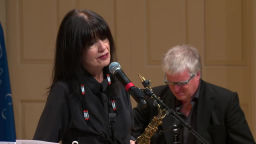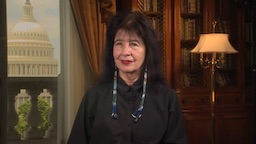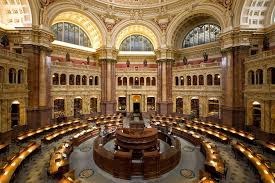U.S. POETS LAUREATE
- Big Whiz

- Jan 7, 2022
- 9 min read
Updated: Jan 9, 2022


"Librarians were called during that time [during the Patriot Act] feisty fighters for freedom, and we were very proud of that label."
-Carla Hayden, Librarian of Congress
POET LAUREATE
Hello Q2 Family. I pray that this beautiful day finds each of you in robust health and spirits. Are you guys prepared for the rapidly advancing winter? There has always been something magical and nostalgic about winter for me. Old Man Winter always arrives with a cool calm and cozy demeanor. There’s just something about sliding on my warmest slippers and posting up in front of the fireplace, with a warm mug of hot cocoa that gets my pen moving. This is when I’m at my most productive and eclectic version of self. In the Corps, we are trained to notice patterns, so that we then notice changes in patterns. Things like enemy troop movement, when you notice changes in the patterns in your surroundings and react to them. Such is this forever-ending life. One of my Devil Dog brothers, who is also an author, commented during a recent discussion that I should be Poet Laureate. Now before you consider this a flattering gesture on his part, be assured that he did not mean this in a nice way. We often engage in a bit of harmless foolery and trash talking. None-the-less, this got me to thinking more about the position. I wanted to know as much as possible about how the title came into existence and how candidates are evaluated and chosen. Then, as if it was a sign, I saw the amazing poem recital delivered by Amanda Gorman. I always believed previously that she was the U.S. Poet Laureate. My subsequent research led me to clarity in regard to the Poet Laureate position and her correct title. More on that later . . . for now let’s get a little retrospective. Albertina Massato of Paudau and Francesco Petrarca are regarded as the first crowned poet laureates due to the Greek tradition of presenting poets with laurel wreaths. In fact the origin of the term is the Latin word laureatus meaning crowned with a laurel wreath. Of course the United States and Europe come to mind when the Poet Laureate is mentioned, but other countries including Canada, New Zealand, North Korea, Sierra Leone and Somalia have some similar appointment. The official title of the position is “Poet Laureate Consultant in Poetry.” This title was established by an act of Congress on December 20th, 1985. From 1937 until then the position was titled “Consultant in Poetry to the Library of Congress.” Chosen by the Librarian of Congress, the Consultant’s original duties were similar to that of a librarian. They were to maintain and extend the library’s collections, gain in-depth knowledge about the items in these collections and answer any scholarly inquiries in reference to these collections. These days the Library of Congress leans away from any assertive list of duties and more toward allowing each individual Poet Laureate to utilize their own unique skills and approaches to encourage reading, writing, and love for poetry world-wide. For truly creative souls, uniqueness is a core element when embarking on any artistic endeavor. The only specific duties are; a formal reading at the beginning and end of their terms, and introduction of the Witter Bynner Fellowship prize winner. Poet Laureates receive an endowment from Archer M. Huntington who established the original position. They receive an annual $35,000 stipend along with $5,000 to cover travel. Since 1994, the Poet Laureate works out of the suite in the northwest corner of the third floor of the Library of Congress’ Jefferson Building.
The first American Poet Laureate was Joseph Auslander, who held the title from 1937 to 1941. The current (23rd) U.S. Poet Laureate Consultant in Poetry is Joy Harjo. Librarian of Congress, Carla Hayden appointed Harjo to her third term in September 2021 . . . making her only the second to receive this extension. Two consecutive terms are considered max length of a Poet Laureate’s tenure. The COVID-19 pandemic greatly hindered her previous term’s effectiveness. After reappointing her, Hayden said of the poet, “Throughout the pandemic Joy Harjo has shown how poetry can help steady us and nurture us. I am thankful she is willing to continue the work on behalf of the country. A third term will give Joy the opportunity to develop and extend her signature project.” According to poetry.org, there have been three previous presidents to request poetry recitals for their inaugurations. John F Kennedy requested Robert Frost for his 1961 ceremony. Bill Clinton requested Maya Angelou for his first election (1993) and Miller Williams for the ceremony in 1997. Barak Obama requested Elizabeth Alexander in 2009 and Richard Blanco in 2013.

“As the first Native U.S. Poet Laureate, I decided that my signature project should introduce the country to the many native poets who live in these lands. Our communities innately shared and share poetry from before the founding of the United States to the present.”
Born on May 9, 1951, Harjo has authored nine books of poetry. She is the recipient of numerous awards including the PEN Open Book Award, the American Indian Distinguished Achievement in the Arts Award, the New Mexico Governor’s Award for Excellence in the Arts and the Arell Gibson Lifetime Achievement Award from the Oklahoma Center for the Humanities. Along with these, she is the recipient of fellowships from the Guggenheim Foundation, the Witter Bynner Foundation and the National Endowment for the Arts. Her collection “How We Become Human: New and Selected Poems 1975-2001” (WW Norton 2002) was selected by the National Endowment for the Arts for its Big Read program. Recent honors include the Jackson Prize for Poets and Writers (2019), the Ruth Lilly Poetry Prize from the Poetry Foundation (2017) and the Wallace Stevens Award from the Academy of American Poets (2015). Our beloved poet was selected a Chancellor of the Academy of American Poets in 2019. (Library of Congress Website)
Joy Harjo’s signature project as Poet Laureate is “Living Nations, Living Words: A Map of First Peoples’ Poetry.” Developed in conjunction with The Library’s Geography and Map Division, this digital project will be created using ARCGIS Story Maps. Harjo commented on the project, “Poetry reminds us that we are connected beyond words, and to communicate through poetry has the potential to expand the conversation into wordless depths, to help us move collectively into fresh cultural vision. To get there in understanding we begin with the roots. In this country, the roots are found in the poetry of the more than 500 living indigenous nations.” (Library of Congress Website) A new video series from the Washington Post (The Poetry of Home) features the writer’s work along with works from three other U. S. Poets Laureate. The oldest of four children, Joy’s birth name was Joy Foster. Her father was a sheet metal worker from a Creek family and her mother was a waitress of mixed Cherokee, Irish and French descent. Her great-great-grandfather was a Native American leader in the Red Stick War in the 1800’s. Her amazing creativity is a gift from her diversely talented bloodline. Her mother wrote songs, her grandmother played saxophone and her Aunt was an artist. She recalls writing her first poem in the 8th grade. Like most of us, the good times in her life were offset by some dreary ones. Her father battled alcoholism and all its associated demons. She remembers him kicking her out of the house at the age of sixteen. Soon her parents were divorced. Harjo turned to painting as a way to escape her own demons. She attended the Institute of American Indian Arts in Santa Fe, New Mexico. While she was there she met and married fellow student Phil Wilmon. The couple had a son they named Phil Dayn. Later the two were divorced and at age nineteen, Joy became a member of the Mvskoke (Muscogee) branch of the Creek Tribe. This is when she changed her name to Harjo, which means “courage” after her mother. You can read more on Joy Harjo’s fascinating background at womenshistory.org/education-resources/biographies/joy-harjo.
*To inquire about Poets Laureate for appearances please contact Blue Flower Arts.

“While we might feel small, separate, and all alone, our people have never been more tightly tethered. The question’s not if we will weather this unknown, but how we will weather the unknown together.”
Amanda Gorman- The Miracle of Morning
When I was corrected to the fact that Amanda Gorman was indeed not the U.S. Poet Laureate, it confused me. My curiosity peaked and I was compelled to find out what her actual official title was. Once I did, the reason for my confusion was logical. The National Youth Poet Laureate is associated with the United States Poet Laureate since they are both sponsored by the Library of Congress. Unlike the Poet Laureate, the Youth Poet Laureate is selected via competition. The National Youth Poet Laureate Program seeks to identify and empower exceptional youth poets to inspire positive change. The program is supported by The Academy of American Poets, Poetry Society of America, The Library of Congress, The National Endowment for the Arts, The National Parks Service, Cave Canem and other charitable donations. Nominations are open from October through November. Four Regional Ambassadors are chosen; one from each other the four regions in the nation. A panel of judges and a rubric are tasked with selecting candidates with the highest numbers to represent that region. The qualifying age group is 13-19. Selections will be announced the following January. Amanda Gorman was born and raised in Los Angeles, California. She graduated Cum Laude from Harvard University in 2020. Amanda’s mother, Joan Wicks, taught English at an elementary school in Watts. She has a twin sister, Gabrielle Gorman who is a film writer, producer, director and activist. Spencer, her older brother, is much more of an enigma. I failed to find any tangible information on him. If anyone reading this has any addition knowledge on Spencer, please don’t hesitate to comment on this post. Among the things I’ve found that we share in common, Gorman was born prematurely and was diagnosed with a pesky speech impediment as a youth. My own recollection of being told I had a speech hiccup was quite shocking to say the least. I remember thinking that I spoke just as well as my elementary school peers. Embarrassment and shame initially made me dread the thought of attending therapy sessions. Contrary to my belief, my therapist turned out to be a complete angel. She not only convinced me to love and look forward to each session, she boosted my faulty, young self-esteem to new highs. I was learning to appreciate working toward things that would improve me. So shot out to Ms. Pam wherever you are . . . you’re a game changer! Later I also discovered that like Amanda and me, President Bidden also had a speech impediment. Overcoming these challenges at an early age can set the groundwork for lifting yourself up when obstacles rear their ugly heads.
“I don’t look at my disabilities as a weakness. It’s made me the performer that I am and the storyteller that I strive to be. When you have to teach yourself how to say sounds, when you have to be highly concerned about pronunciation, it gives you a certain awareness of sonics, of the auditory experience.”
- Amanda Gorman

In 2017, Amanda was named the first National Youth Poet Laureate of the U.S. She was only 19. Previously she served as the Youth Poet Laureate of Los Angeles. She was 16 years old. Amanda is also founder and executive director of One Pen One Page, an organization which provides free creative writing programs for underprivileged youth. First Lady Jill Bidden was a fan of Gorman’s work and convinced the inaugural committee to invite her to recite a poem for the ceremony, according to the LA Times. The poet was invited by President Biden to read her poem “The Hill We Climb” for his inauguration on January 20, 2021. She is the youngest person to serve in this capacity. She is also the first poet commissioned to draft a poem for the Super Bowl. In an amazing feat of forward thinking, she has already announced her intention to run for president in the 2036 election. Even at the tender age of 14 she joined a Los Angeles non-profit called Write Girl. The group promotes creativity, self-expression and female empowerment. Her commitment to literacy, literature, poetry and presenting an inspiring can-do attitude, should serve as a challenge to us all. We are the protectors of the fine arts and free-thinking. Just as our Poets Laureate encourage reading, art, music and writing, so too should we. Together we keep the embers of ancient magical crafts burning into the future. Before completing my research for this post, I was unaware that many of these appointments, titles, and organizations existed. I plan to take full advantage of his knowledge and implore you to do the same. Support ANYONE who is doing positive things. We must learn to respect each other’s struggles…then we become HUMANITY! Support is a privilege because it’s a privilege to have something to support. It is imperative that we encourage our children to utilize their minds and steer them away from violence as a means to conflict resolution. Creativity makes us the outliers of the world. Remember that all writers are readers, but not all readers are writers. My hat’s off to you for making the effort and for making Earth a much more beautiful and tolerable place to live. TOGETHER we stand . . . DIVIDED we fall! Reclaim your intellectual property and share it with the world. CARPE DIEM!
videos
*List of all U.S. Poets Laureate:
*List of National Youth Poets Laureate:










Thanks Kris and Welcome Aboard!
Good information!
Very interesting and so much goodness to be so much unknown to most of the world. I thoroughly enjoyed reading this.
So awesome. I too researched this topic earlier this year; Upon, seeing Amanda Gorman at the Presidential Inauguration. This blog post is so very informative. Thank you. ~ Shalom & Blessings, Ta'Wand aka Happiness